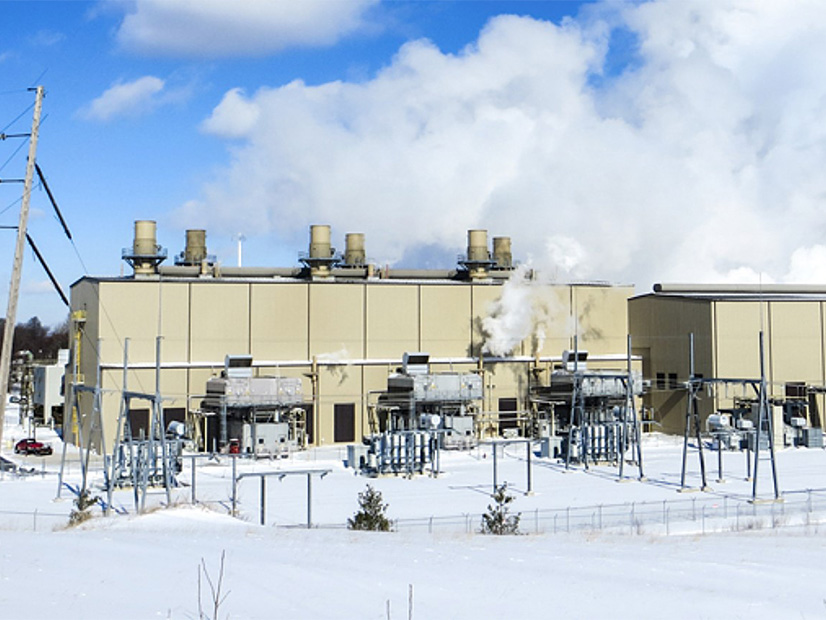A federal appeals court has brought Michigan’s practice of requiring some amount of locally generated electricity to a standstill, finding that the Michigan Public Service Commission violated the Commerce Clause when designing local clearing requirements.
The 6th U.S. Circuit Court of Appeals decided in a Jan. 16 order that Michigan’s local clearing requirement — which requires load-serving entities and alternative energy suppliers alike in the lower peninsula to procure an increasing percentage of their total capacity from within MISO’s Zone 7 — is discriminatory and “impermissibly interferes with interstate commerce” (23-1280). The appeals court reversed and remanded a district court’s earlier finding that the requirement does not discriminate against interstate commerce.
MISO’s Zone 7 encompasses the lower peninsula, while the upper peninsula and a portion of Wisconsin are in Zone 2. Michigan relies on MISO’s local clearing requirements to establish its own but adds the condition that some capacity comes from in-zone sources.
Energy Michigan, composed of a group of the state’s alternative energy suppliers and the Association of Businesses Advocating Tariff Equity (ABATE), an association of industrial and manufacturing entities that use the alternative suppliers, originally sued the Michigan Public Service Commission for its 2017 order establishing the local clearing requirements (U-18197).
“Can the state of Michigan require someone selling a product in Michigan to procure that product from the state? Or, phrased in the language of the coin’s other side, can Michigan bar in-state retailers from obtaining their merchandise from outside the state? On these issues, negative Commerce Clause jurisprudence is straightforward. Whether the product at issue is milk, or coal-based electricity, the Commerce Clause prohibits such state restrictions unless they clear strict scrutiny’s high bar,” the court said, drawing on past cases.
The court said the Michigan PSC couldn’t make a law that “overtly blocks the flow of interstate commerce at a state’s borders.”
The Michigan PSC argued that it didn’t discriminate because the order’s language doesn’t mention state boundaries, only MISO’s local resource zones. The court called that “not much of a step” because Zone 7 geographically corresponds with Michigan’s lower peninsula.
Michigan regulators also argued that the clearing requirement’s purpose is to promote resource adequacy, not to protect domestic industry. Energy Michigan and ABATE took a different view of the law, arguing that it’s meant to favor utilities in the marketplace and drive out alternative energy suppliers, which are more likely to sell out-of-state electricity. Michigan allows up to 10% of retail electricity sales to be purchased from alternative electric suppliers.
However, the court said the aim of the requirement is irrelevant.
“Even the most benign purpose … cannot save a facially discriminatory law from strict scrutiny,” it said. The court added it judged the percentage requirement the same way it would a requirement dictating 100% of peak demand be procured from Michigan “or even an entire ban on electricity supply derived outside the state’s borders.”
Finally, the Michigan PSC argued that the Federal Power Act authorized it to enact the local requirement, pointing to a section that removes facilities used for electricity generation from federal jurisdiction. The court responded that “it is difficult to see how this provision authorizes, let alone unambiguously so,” Michigan to discriminate against interstate commerce.
Circuit Judge Danny Boggs dissented from the ruling, saying the case deserves some nuance and is “clearly” beyond the scope of the Commerce Clause because of the players involved. He said the district court erred in its conclusion that public utilities and alternative electric suppliers are similarly situated entities simply because they offer the same commodity.
Boggs argued that unlike the state’s utilities, unregulated alternative electric suppliers typically contract with industrial manufacturers and mid-size commercial customers and aren’t under an obligation to serve.
“At bottom, eliminating the local clearing requirement would do nothing to further the Commerce Clause’s ‘fundamental objective of preserving a national market for competition,’ and it would undermine the reliability of the state’s grid. The majority of Michigan’s retail electricity market remains in the hands of the public utilities, who have an unshakable obligation to serve that vital market,” Boggs wrote.
Boggs said MISO’s local resource zones are not only based on state boundaries but also drawn according to results of MISO’s loss of load expectation studies, “the relative strength of transmission interconnections,” the electrical boundaries of local balancing authorities and the seams between RTOs.
“Declining to give full weight to the judgment of state and local regulators on a matter of state and local concern is a fraught exercise, particularly considering the intricate area of energy regulation at play here,” Boggs wrote. “Geographic proximity to generation improves grid reliability, and without the requirement to secure in-state capacity, Michigan would be at risk of falling short of federal reliability standards.”




